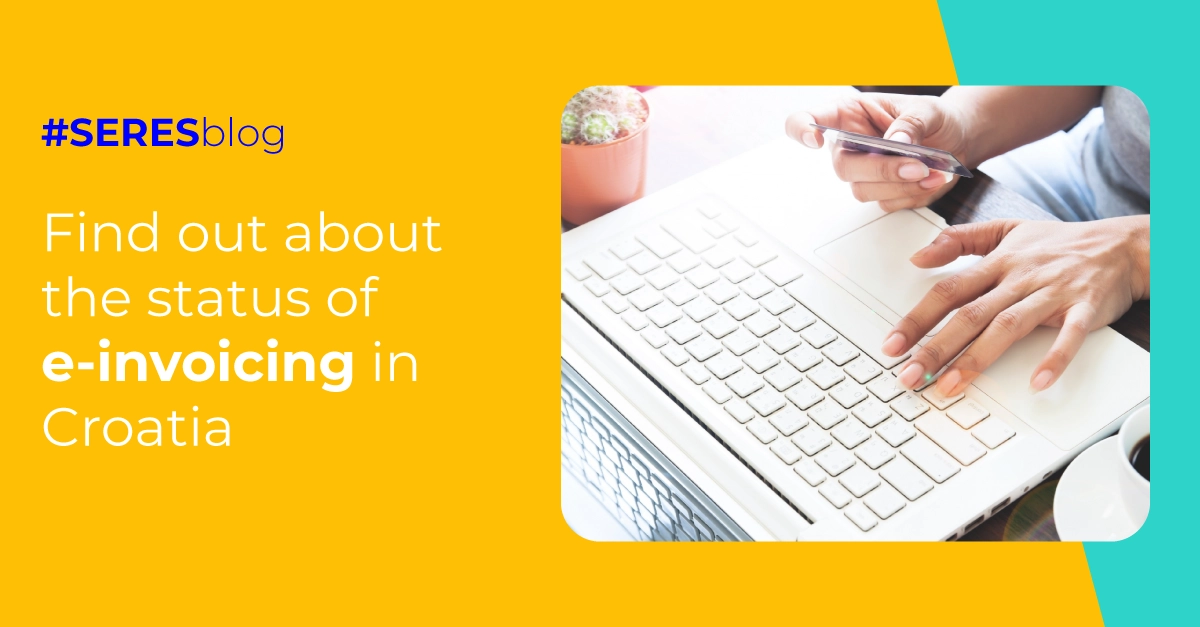B2B e-invoicing in Germany is official
The German government will work until the end of 2025 to combine its two electronic invoicing platforms (ZRE and OZG-RE) into one platform (OZG-RE). This will improve operations and the user experience.
This decision was made in November 2024, and the migration began on May 23, 2025. The goal is to create one channel for issuing electronic invoices.
The migration will be done in two phases:
- The first phase is set to end on June 20, 2025, by which time several federal authorities must be connected.
- The second phase will take place at the end of 2025 and is related to the ZRE platform, which will no longer be available.
However, authorities must give advance notice of the platform change and provide all necessary information and credentials. The German government will work until the end of 2025 to combine its two electronic invoicing platforms (ZRE and OZG-RE) into one platform (OZG-RE). This will improve operations and the user experience.
In the summer of 2025, Germany amended the GoBD accounting principles to align them with the mandatory implementation of B2B electronic invoicing, which was to come into effect in January 2025.
It was determined that the XML file constitutes the legal document for archiving purposes, thereby eliminating the obligation to retain a PDF copy provided that a view can be generated from the XML file. The original file must also be retained, even if it is converted for internal processing.
Status of B2B e-invoicing in Germany
The German Ministry of Finance (BMF) has published an update to the June draft, providing further details regarding the scope and rules for the forthcoming mandatory B2B e-invoicing initiative, scheduled to commence in January 2025.
The letter addresses the scope of electronic invoicing, formats (including the EN 16931 standard), transmission and storage of invoices, and input deductions. The German government has concentrated on the legal framework, stipulating that the initial phase of e-invoicing necessitates the transmission of an e-invoice in a structured format via a mutually acceptable method to customers.
Conversely, during the transition period towards mandatory e-invoicing, specific types of companies, with a lower invoicing volume, may continue to issue invoices in paper or unstructured formats under certain conditions.
The German government has announced the introduction of an electronic mailbox for the receipt of electronic invoices, citing the lack of advanced systems for the processing of such documents as the rationale behind this decision.
Nevertheless, some companies will be permitted to select alternative transmission channels, including electronic interfaces and dedicated portals. This decision is part of the wider initiative to introduce B2B e-invoicing in Germany, scheduled to commence on 1 January 2025. This follows the approval of the Growth Opportunities Act (Wachstumschancengesetz), which formalises the introduction of business-to-business e-invoicing.
After the changes in the Fourth Red Tape Reduction Act (Viertes Bürokratieentlastungsgesetz) and the Annual Tax Act 2024 (Jahressteuergesetz 2024), there will be a few key updates.
The electronic storage period for invoices has been increased to 8 years from 1 January for those invoices whose storage period has not expired by 31 December 2024. If you're part of the small business scheme (Kleinunternehmerregelung), you won't have to pay VAT.
To qualify for this scheme, you'll need to have made at least €25,000 in sales in the previous tax year and at least €100,000 in sales in the current tax year.
Small businesses below the threshold won't have to issue e-invoices that comply with the EN standard. Just a heads-up: these businesses still have to receive EN-compliant e-invoices.
A new version of ZUGFeRD 2.3 was released on May 7, 2025. This new version was created to put e-invoicing reforms into effect in Germany. This version includes an update of the code lists, which are updated every six months for the European standard EN16931. It will take effect on May 15, 2025.
Timetable for the implementation of B2B e-invoicing in Germany
The timetable established after the publication of the Growth Opportunities Act (Wachstumschancengesetz) is as follows:
- The B2B e-invoice has now been officially implemented in Germany, and a voluntary adoption period has been initiated for taxpayers who wish to adopt it. During this period, all German companies are required to be able to receive electronic invoices that comply with the EN 16931 standards. It is permitted for suppliers to continue issuing paper invoices. However, for invoices in unstructured formats and EDI invoices that do not comply with the EN standard, the buyer's consent must be obtained.
- In January 2027, all companies with a turnover exceeding €800,000 will be prohibited from issuing invoices in paper or unstructured electronic formats. The phase-out of paper invoices has commenced, and, for the time being, the use of EDI for issuing invoices will be permitted until 31 December.
- By January 2028, all German businesses, including small businesses, will have adopted electronic invoicing and will no longer be able to issue invoices in paper or unstructured electronic formats. Furthermore, EDI e-invoices that fail to comply with the European standard will no longer be permitted.
The German tax authorities have recognised a number of e-invoice formats, including structured formats such as XML and hybrid formats that combine structured data with human-readable data as ZUGFeRD (version 2.0.1).
In addition, other national formats that correspond to the list of relevant syntaxes in accordance with Directive 2014/55/EU may also meet the requirements of the e-invoicing obligation. Examples of such formats include French Factur-X and PEPPOL.
It is also important to note that no transition period will be permitted for the receipt of e-invoices. Consequently, companies must be fully prepared to receive them by 1 January 2025. The only exception to this rule pertains to invoices of less than €250, which are exempt from the obligation to comply with the full e-invoicing standards.

Background on B2G e-invoicing in Germany
As Germany is divided into a federal structure, the government and the 16 states had to pass their respective e-invoicing laws to implement Directive 2014/55/EU.
At the federal level, the B2G e-invoicing law came into force since 2017, while at the state level different laws have been passed.
With the publication of the e-Invoicing Act in April 2017 and the e-Invoicing Regulation in September 2017, all federal contracting authorities in Germany are obliged to receive and process e-invoices. The law applies exclusively to regulations for federal bodies.
State or local authorities need additional laws from the federal states, also called Länder. At the federal level, these supplementary laws turn the European Directive into legislation. Therefore, since 18 April 2020, state authorities have to accept e-invoices.
How was the B2G e-invoice implemented in Germany?
From 27 November 2018, federal state authorities are required to receive and process invoices electronically. A year later, on 27 November 2019, all subordinate institutions and sectoral contracting authorities at the federal level will also begin to process electronic invoices.
Finally, from 27 November 2020, all public contracting authorities of the federal administrations must issue and process electronic invoices.
Since 1 April 2025, and following the publication of the E-Rechnungsverordnung RLP, ERechVORP, electronic invoicing has also been mandatory for public authorities in the regions of Rhineland-Palatinate and Hessen, although in the latter they have been able to receive invoices by mail since 2024.
What is the B2G e-invoicing model in Germany?
The e-invoicing model in Germany is decentralised. In the B2G context, issuing is mandatory for all suppliers of all federal and Bremen contracting authorities, while receiving is mandatory for all federal authorities of the central government as well as authorities of the Länder.
Although different e-invoicing platforms exist, Germany has implemented a unified routing system. This routing ID (Leitweg ID) enables the platform to transmit invoices to the public contracting authorities.
The Leitweg ID is a mandatory element in the XRechnung scheme, each ID is composed of a state code and a check digit, while government, district and municipality codes remain voluntary.
The Federal Central Invoice Receipt Platform (ZRE) requires companies to submit electronic invoices in the XRechnung format. This format is mandatory for issuing, processing, and accepting invoices by all central and state authorities in Bremen. Additionally, a second platform, OZG-RE, has been developed.
If automated data exchange is available for electronic invoice delivery, all federal and national authorities must use the PEPPOL network. To ensure that PEPPOL transactions can be carried out in Germany, economic operators must select a provider accredited by the PEPPOL Authority, as the XRechnung format is specific to Germany.
E-invoicing in Germany: Key features
Each federal state has the option to either use the standard CIUS model or create its own format for sending, receiving, and processing invoices to state authorities.
This allows for the flexibility of each state to choose between using the central government platform or developing its own platform for handling e-invoices.
The states that have developed their own platform are currently using it are:
- Follow the local ErechVOBW regulations on Service-bw.de in Baden-Württemberg.
- Lower Saxony: Zentrale E-Poststelle. Follows the local regulation Niedersächsischen Verordnung über den elektronischen Rechnungsverkehr.
- Bremen: zERIKA. Adhere to the regulations outlined in the local E-Rechnungs-VO.
- Hamburg via the Elektronische Postselle portal.
- North Rhine-Westphalia: vergabe.NRW. Folgt der örtlichen Regelung Verordnung zur Ausgestaltung des elektronischen Rechnungsverkehrs nach § 7a des E-Government-Gesetzes Nordrhein-Westfalen.
- Rhineland-Palatinate: ZRE RLP (E-Rechnungsportal Rheinland-Pfalz).
- Saxony Anhalt, via the E-Rechnungsportal portal.
- Schleswig-Holstein. Follows the local regulation E-Rechnungsverordnung (ErechVO).
In Berlin, Brandenburg, Mecklenburg-Pomerania, Saxony and Thuringia, the central portal OZG-RE has been used. In Hessen, Bavaria and Saarland no central reception system has been set up.


